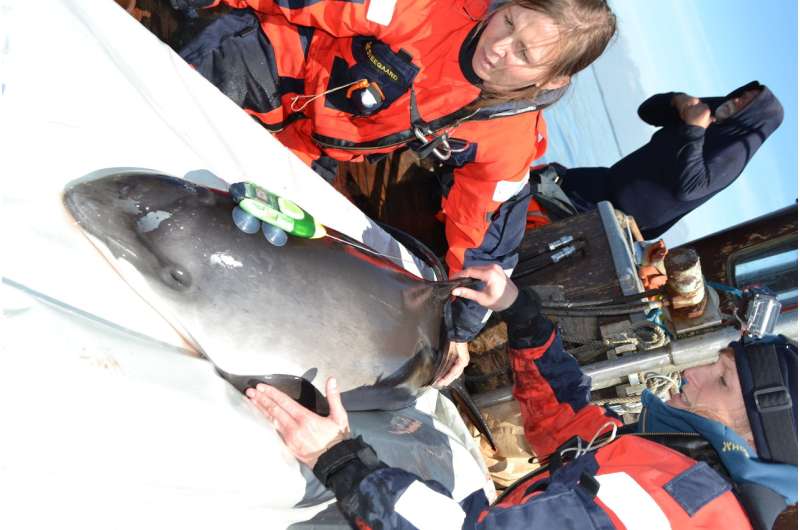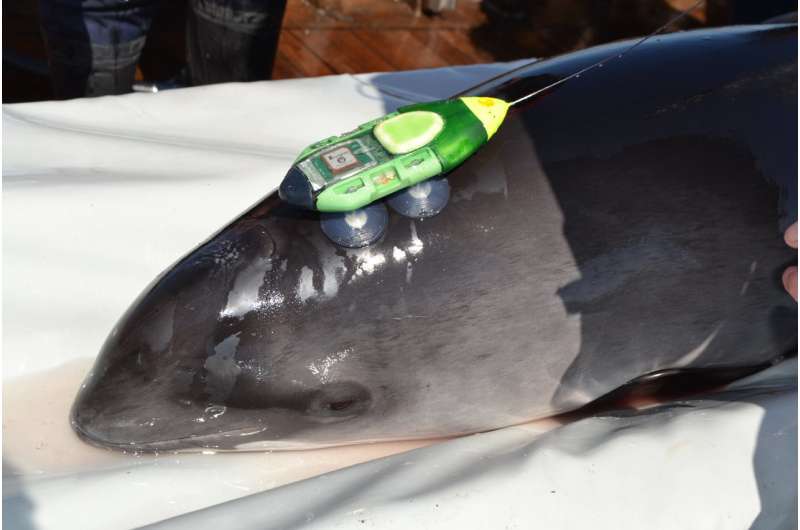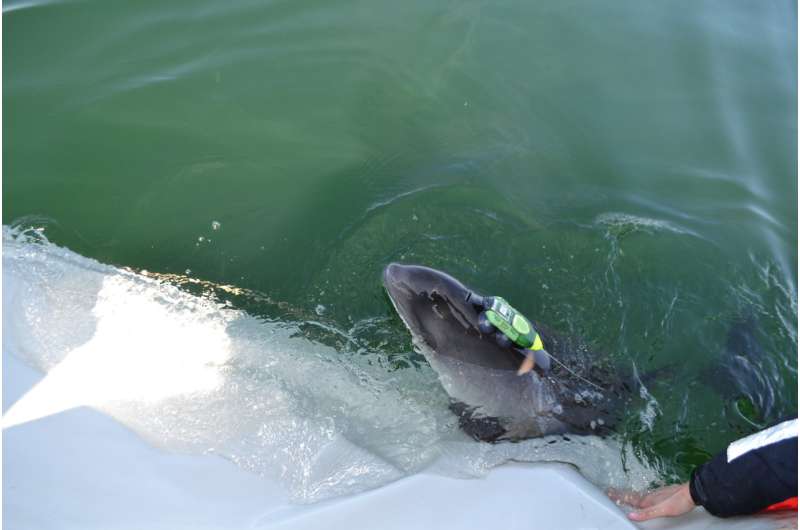Study shows, for the first time, that porpoises flee from and stop feeding when disturbed by heavy ship noise

Porpoises communicate with each other using sounds. Therefore, they are highly sensitive to noise, such as ship noise. And the Danish belts and sounds are some of the most heavily trafficked waters in the world.
An international research team led by researchers from Aarhus University successfully fitted electronic tags on the backs of seven porpoises with the aim to obtain insight into how they react to disturbance of normal living conditions by ship noise.The groundbreaking data are published today in the journal Proceedings of the Royal Society B with post doc Danuta Wisniewska as main author.
A swimming employee
For many years, the research team headed by senior researcher Jonas Teilmann, Department of Bioscience, Aarhus University, has cooperated closely with Danish pound net fishermen as porpoises are sometimes accidentally caught in pound nets. A fast phone call to the researchers and their speedy response ensure that the team can be at the site within a few hours. The porpoise is lifted out of the net and into the fishing boat where its sex, size and health are determined before the new it is fitted with an electronic tagging device by means of suction cups.
The electronic tags record the sounds from the animals and noise from ships, and allow the researchers to see when the porpoises feed and the depth at which they stay. The extensive data makes it possible, for the first time, to see how ship noise affects the movement and feeding of the porpoises.

"When the ship noise exceeds a certain level, the porpoises stop feeding. At very high sound levels, the animals dive to the bottom and move quickly along, and they cease emitting the biosonar clicking sounds that they use when searching for food," says Jonas Teilmann.
The porpoise is Denmark's smallest cetacean, and researchers have long been concerned about how its living conditions are influenced by the intensified human activity at sea. "Our measurements show that the porpoises do respond to heavy ship noise. It is still too early to say, though, what this means to the well-being of the porpoises, their production of offspring and, in the long term, their survival," says Professor Peter Teglberg Madsen, Aarhus University, who is one of the researchers behind the sensational findings.

More information: Danuta Maria Wisniewska et al. High rates of vessel noise disrupt foraging in wild harbour porpoises ( Phocoena phocoena ), Proceedings of the Royal Society B: Biological Sciences (2018). DOI: 10.1098/rspb.2017.2314
Journal information: Proceedings of the Royal Society B
Provided by Aarhus University



















